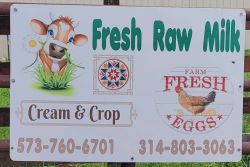The Path to Food Freedom: Agriculture in Urban Spaces
posted on
July 29, 2023
ST. FRANCOIS COUNTY, MO – Amidst the shifting sands of food security, self-sustainability, and climate action, St. Francois County, including the city of Park Hills, must play its part. The region, rich in agricultural history, is ripe for a revival of its roots, starting with reevaluating the prohibition on rooster ownership and promoting food freedom.
In Park Hills, the irony is unmistakable: residents can freely sell pets like dogs and cats from their homes, yet selling chickens or eggs is disallowed. This rule paints an imbalanced picture of our rights, especially when one considers the relative nuisance of a dog barking throughout the night, compared to the crowing of a rooster.
Measured in decibels, a barking dog can reach a volume of up to 90 decibels, while a rooster’s crow often reaches only about 70 decibels. While both can certainly be a disturbance, it seems unfair to vilify one over the other.
A surge of food freedom throughout St. Francois County can have extensive benefits, ranging from bolstering local economies, fostering sustainability, and preserving cultural heritage. It also opens up the opportunity for the practice of regenerative agriculture within urban contexts.
Regenerative agriculture, including livestock rearing and gardening, is a robust, forward-thinking strategy. The approach enriches the soil, reduces carbon footprint, and fosters biodiversity, among other benefits. Even in an urban context, regenerative agriculture can be adopted effectively on smaller scales to the advantage of individual farmers and the community at large.

The economic empowerment that comes with allowing the sale of poultry and eggs cannot be overstated. For many residents, this could offer a valuable source of additional income, a welcome prospect as families continue to recover from the economic challenges brought by the COVID-19 pandemic.
Moreover, regenerative agriculture practices contribute significantly to sustainable living and environmental conservation. As our world grapples with the effects of climate change, the need for sustainable, localized food sources becomes increasingly urgent. Urban agriculture practices involving livestock and gardening can offer just that, producing healthier, locally-sourced food and reducing our environmental impact.
Finally, embracing rooster ownership and regenerative agriculture is a nod to St. Francois County’s historical identity. Our region has long been an agricultural stronghold, and bringing back these practices can help us reestablish this important connection, fostering an appreciation for agriculture amongst our younger generations.
The potential noise and disease spread associated with rooster ownership are valid concerns, but they can be addressed effectively through well-designed regulations and ordinances.
It’s high time for St. Francois County to join the wave of communities across the country championing food freedom. By integrating regenerative agriculture practices, including rooster ownership, into our urban landscapes, we can achieve economic, environmental, and cultural benefits. This approach not only honors our agricultural heritage but also marks a vital investment in the future of our community.
Sign the petition by Ashley Weiss here.


